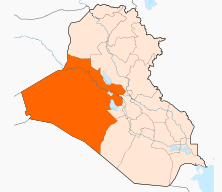The announcement of the latest US escalation into Iraq, starting with 450 ground troops and likely a thousand more coming in short order has fueled concern in the US that the administration is engaging in substantial mission creep. Perhaps more importantly, however, it is fueling another backlash, by the Shi’ite militias in the area the troops are being sent.
 The Shi’ites, dispatched to try to stall an ISIS advance in Anbar, are complaining that US airstrikes are hindering their operations and in some cases killing their fighters instead of ISIS. One noted that “if they really wanted to help us, then they would leave Iraqis to liberate Iraq by themselves.”
The Shi’ites, dispatched to try to stall an ISIS advance in Anbar, are complaining that US airstrikes are hindering their operations and in some cases killing their fighters instead of ISIS. One noted that “if they really wanted to help us, then they would leave Iraqis to liberate Iraq by themselves.”
Hadi al-Amiri, head of the powerful Badr Brigade, dismissed the idea that the US deployments would be of any help, insisting that 150,000 US ground troops were unable to do anything about al-Qaeda in the same area in 2006 and 2007, and the 450 wouldn’t do any better.
The US deployment centers around the idea that they’re going to train up and court Sunni militias to fight in Anbar, aiming to offset the growing influence of the Shi’ites. This obviously doesn’t sit well with the Shi’ite militias either, but so far the US seems to be struggling to find more than a few token Sunni allies even willing to go up against ISIS in the area.


